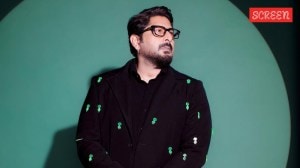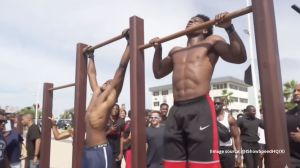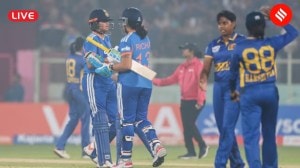Stevie wonder
IT was October 1998 and the first ICC Champions Trophy 8212; it was then called rather awkwardly, the Mini World Cup 8212; was about to be...

IT was October 1998 and the first ICC Champions Trophy 8212; it was then called rather awkwardly, the Mini World Cup 8212; was about to begin in Dhaka. As part of a promotional sponsored by a beverage company, a sports broadcaster was interviewing top cricketers, asking them to identify the one man they8217;d select to bat or bowl for their life. Fourteen of the planet8217;s best cricketers 8212; Brian Lara, Rahul Dravid, the works 8212; were asked the question; eight voted for Steve Waugh. Sachin Tendulkar, if you8217;re interested, got two votes.
Not since Don Bradman 8212; perhaps not even at the peak of Vivian Richards8217; career 8212; had one cricketer so dominated the consciousness of his peers. No wonder in Australia they8217;re already comparing Waugh8217;s announcement that he will retire in January 8212; after the fourth test of the upcoming series against India 8212; as the biggest cricketing departure since the Don walked back to the pavilion.
It is a majestic occasion, a moment of history. With the exception of Sunil Gavaskar, Waugh, 38, has achieved what no leading player has in the modern era 8212; he has retired with people still convinced he could have gone on for a couple of years.
He needs three hundreds to become the game8217;s highest century scorer, 500 odd runs to become its biggest run getter. Four tests is probably too few to get them 8212; though given the Indian bowling perhaps all Waugh has to do is promote himself to number three 8212; but it doesn8217;t matter. It hasn8217;t stopped Waugh retiring; it hasn8217;t stopped the Australian selectors from nudging their captain towards his decision.
That is the Australian way 8212; unsentimental and hard, very hard.
Where will Waugh be placed in the pantheon of Australian captains? With apologies to Alan Border, in the post-Benaud period, only two others bear comparison.
One, Ian Chappell, ruthless and cutting, an Atilla the Hun who drank beer. Two, Mark Taylor, noble leader, the man who could have been an Athenian senator in another birth. Waugh was 8230; is, is till January 2004 8230; a mix of the two 8212; and the greatest of the three.
8216;8216;Mental disintegration8217;8217;: that one phrase he coined transported ordinary sledging to a whole new dimension. It probably served the same purpose, meant the same thing 8212; but Waugh knew what would arrest his opponent psychologically.
Spotted playing for his Sydney school team by Alan Davidson, the former Australian pace bowler, Waugh made his debut against India in 1985. He did nothing exceptional in that series. Indeed, it was not till the 1987 World Cup was won that he began to be noticed.
Exceptional as batsman and captain, Waugh really stands out for his extra-cricket achievements. At the press conference where he announced his retirement, he said his proudest legacy was the Australian Cricketers8217; Association, not his runs, not his victories, not his 11 books, not his charity work.
In May 2001, he took his team to the battlefield of Gallipoli, Turkey, resting place for 8,709 Australian soldiers who died there over eight months in 1915. At his suggestion, every Australian team will make the pilgrimage to Gallipoli en route to an Ashes series in England.
If Waugh was Captain Australia, he was also Mr Straight and Narrow, cricket8217;s reassuring elder statesman in perhaps its darkest hour. Two of his contemporaries, Wasim Akram and Mohammed Azharuddin 8212; both of whom made their international debut in the season before Waugh did 8212; were tainted by the fixing scandal. His twin, Mark, never quite shrugged off charges. Steve walked away unruffled, unperturbed, smelling of roses. Clint Eastwood couldn8217;t have done it better.
- 01
- 02
- 03
- 04
- 05































